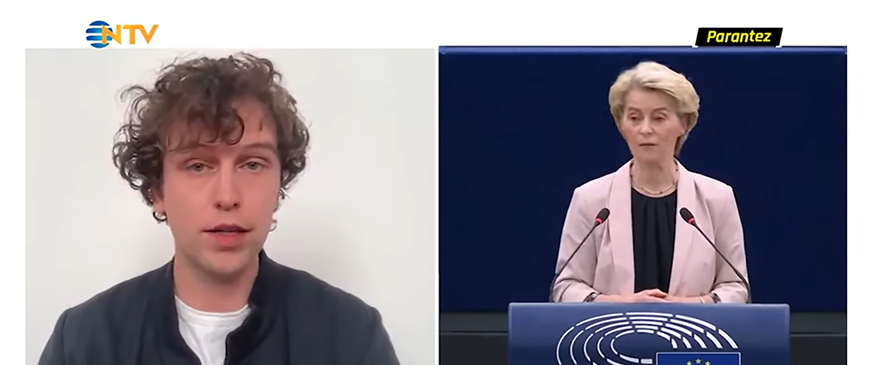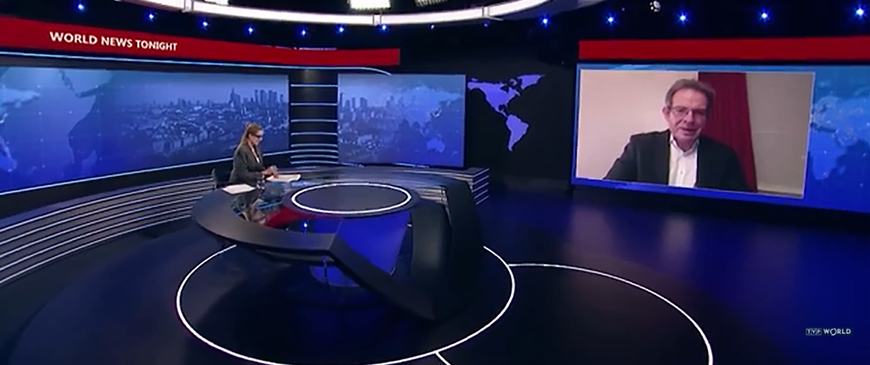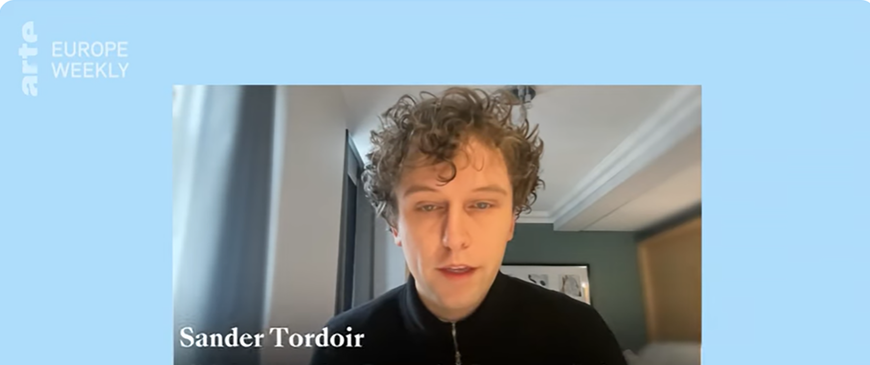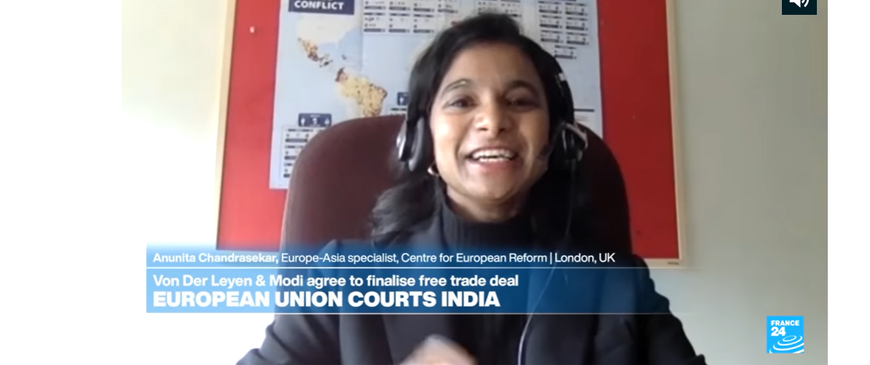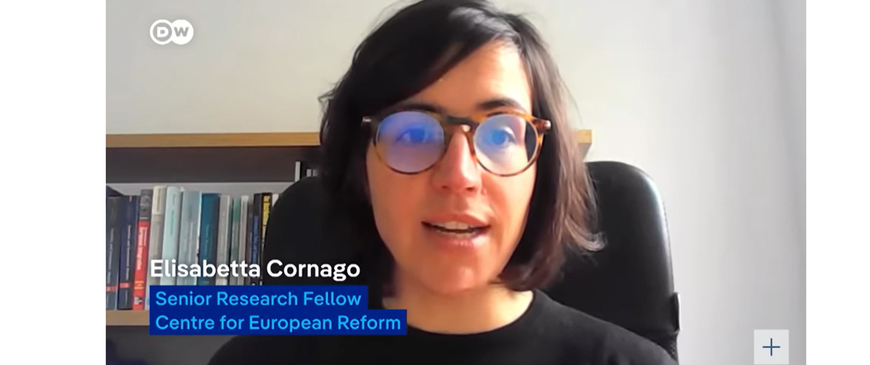Press
Tunisia immigrants row threatens to destroy dream of borderless Europe
20 April 2011
The Times
"There is a rise of parties of the hard Right in Europe which have set their faces against the free movement of people and the Schengen area," said Hugo Brady of the Centre for European Reform. "There is a conflict coming between the democratic desire to put a 'closed' sign on the door when times are tough and a system which does not follow the demands of the democratic cycle."
Springtime for the anti-euro brigades
19 April 2011
Presseurop
"Euro-scepticism is a political force that is waiting for its breakthrough in Ireland," warns Hugo Brady of the Centre for European Reform.
Europe splits over Libya - as with Iraq
18 April 2011
Times Live
"Ashton was not able to make a stand for the no-fly zone at last week's EU summit because the European countries are divided," ever since the mistakes in the drawn-out conflict in Iraq, said analyst Hugo Brady of the Centre for European Reform. "The EU isn't coherent," on foreign policy, he added in an interview. "It's an ongoing problem."
NATO may need escalation to break Libya stalemate
18 April 2011
Reuters
Tomas Valasek, a defence analyst at the Centre for European Reform, said an escalation of the military effort could be necessary - at least in the short term - to end attacks on civilians and apply pressure for a political solution.
Libya crisis reveals splits on EU goals
18 April 2011
New York Times
"Libya confirmed France's worst beliefs," said Clara Marina O'Donnell, a defence expert at the Centre for European Reform, a research organisation in London. "It could not rely on its EU partners." … "The Anglo-French accord confirmed the frustration in London and Paris over EU defence efforts," Ms. O'Donnell said. She added that European defence could become even weaker as long as these two countries continue to co-operate so closely.
Greece's economy teeters on the brink of default
17 April 2011
The Globe and Mail
"Most intelligent people know there has to be a significant restructuring to ease the burden on Greece, and we're not talking about a painless extension of maturities, but wiping away a large portion of the debt," said Charles Grant, director of the Centre for European Reform in London. "My worry is that the longer they leave it, the stronger the euro-scepticism becomes. When they finally do decide to restructure the debt it will be too late."
Hooray! The Yanks are going home
14 April 2011
Financial Times
The figures are set out by Tomas Valasek in an illuminating report [Surviving austerity: The case for a new approach to EU military collaboration] for the Centre for European Reform. Most European nations are already spending far below the NATO target of 2 per cent of national income. Denmark alone plans to increase its budget in coming years. One or two others are planning to freeze spending. All the rest are cutting. Mr Valasek rightly calls for the pooling of costs and capabilities. But the problem goes beyond national pride.
Portugal's political leaders weighing up possible bailout terms, wary of Greek and Irish woes
13 April 2011
The Washington Post
Simon Tilford, chief economist at the Centre for European Reform think-tank in London, said "previous bailouts have solved nothing" and Portugal "is right to bargain hard" because similar rates to those imposed on Athens and Dublin could be self-defeating. "There's a risk that unless loans are extended at a serviceable interest rate, all the bailout would do would make things worse," he said. Tilford said that underlying worry puts Portuguese authorities in a stronger bargaining position as they assess the bailout terms on offer.
Analysis: French criticism highlights NATO limits in Libya
12 April 2011
Reuters
Defence analyst Tomas Valasek of the Centre for European Reform said NATO faced a situation reminiscent of the 1999 Kosovo air war against Serbia, when it took the veiled threat of a ground invasion to persuade then-Yugoslav President Slobodan Milosevic to withdraw his forces. Gaddafi was placing his armour in populated areas to try to provoke NATO into strikes that would kill civilians and split the coalition, peeling off Arab support. Any attempt to target Gaddafi and his entourage entailed the same risk, he said.
The next European crisis: boat people
11 April 2011
The Economist
Migration is likely to be a contentious issue at June's European summit (see this paper by the Centre for European Reform). With anti-immigrant parties on the rise across Europe, the dispute has great potential to degenerate.
In Portugal crisis, worries on Europe's 'debt trap'
08 April 2011
New York Times
"What has been missing, in the debate about how countries can restore their finances to some kind of sustainability, is the limit of how much they can cut in a period of austerity," said Simon Tilford, chief economist for the Centre for European Reform in London. "There is a limit of how much any government can cut back spending and survive politically unless there is a light at the end of the tunnel, a route back to economic growth.
The EU needs to woo Israel if it’s to be a peacemaker
01 April 2011
Europe's world
Sharon Pardo highlights a number of important ways in which the EU can support the Middle East peace process, not least by encouraging internal Palestinian reconciliation. But if the EU wants to play a larger role in the peace process it also needs to improve its image in Israel.
...
...
Europe's not so eternal triangles
31 March 2011
Financial Times
Charles Grant, the director of the London-based Centre for European Reform, suggests that Britain and France could form the core of a series of coalitions of the capable. Smaller nations such as Denmark and the Netherlands have shown a willingness to deploy military muscle. Spain, Poland and some others could be occasional members of such coalitions.
Paris and London torpedo EU foreign policy
31 March 2011
La Stampa
Notwithstanding questions about their commitment to European policies in foreign affairs and defence, France and the United Kingdom have succeeded in monopolising most of the key jobs in the European External Action Service (EEAS), which is increasingly aligned with positions adopted in London and Paris.
Euro-pact plus decision carries hidden threat
30 March 2011
Financial Times
Charles Grant, director of the Centre for European Reform, is among those who believe that this month’s EU summit in Brussels might have been a fork in the road. "If you're not in the room, your influence is diminished", he said... Mr Grant worries that once 23 leaders out of 27 start to hold regular meetings, they will inevitably start to "caucus" on issues relating to the EU's single market, regardless of undertakings to the contrary.
ANALYSIS - EU states back "euro pact" despite deep concerns
24 March 2011
Reuters
"Over time a two-speed Europe looks unavoidable," said Simon Tilford of the Centre for European Reform in London. "Going forward, there will have to be closer integration and that inevitably means countries that are determined to stay out risk seeing their influence within the EU erode."
Disputes on Euro rescue risks marring summit
23 March 2011
New York Times
"They haven't grasped what they have to do in terms of restructuring and recapitalising the banks," said Charles Grant, director of the Centre for European Reform, a research institute. "They are behind the markets. Public opinion in Ireland and Greece on the one hand, and Germany and Netherlands on the other, is going in incompatible directions," Mr Grant said. "There may be a time when, even if politicians want to do the right things for the euro, public opinion will not allow them to."
Libya's lesson for Europe
16 March 2011
The American Spectator
Charles Grant, director of the Centre for European Reform, complained: "On many of the world's big security problems, the EU is close to irrelevant. Talk to Russian, Chinese or Indian policy-makers about the EU, and they are often withering. They view it as a trade bloc that had pretensions to power but has failed to realise them because it is divided and badly organised."
Briefing: Time for the US and EU to lift arms embargoes against China?
15 March 2011
Jane's Defence Industry
Charles Grant, director of London-based think-tank the Centre for European Reform, told Jane's: "I think the French genuinely hope to get contracts out of it [Lifting the EU arms embargo on China]. They've had an arms export driven foreign policy for years." UK policy on the EU ban "has gone back and forth", he added. The US remains "the key" to any future change in EU policy, according to Grant: "There's no chance of it being lifted in the near future because the Americans don't want it to be.
EU unites against Gaddafi, but not on what's next
11 March 2011
Time
Charles Grant, director of the London-based Centre for European Reform, says this is a chance for the EU to offer parts of the Arab world more money, markets and mobility — but to tie those benefits to progress on democracy and human rights. "If the EU wants to influence its neighbours it will need to increase its offer to them. What should be clear in the new neighbourhood policy, however, is that only countries which reform their political systems will enjoy the closest relations with the EU."

